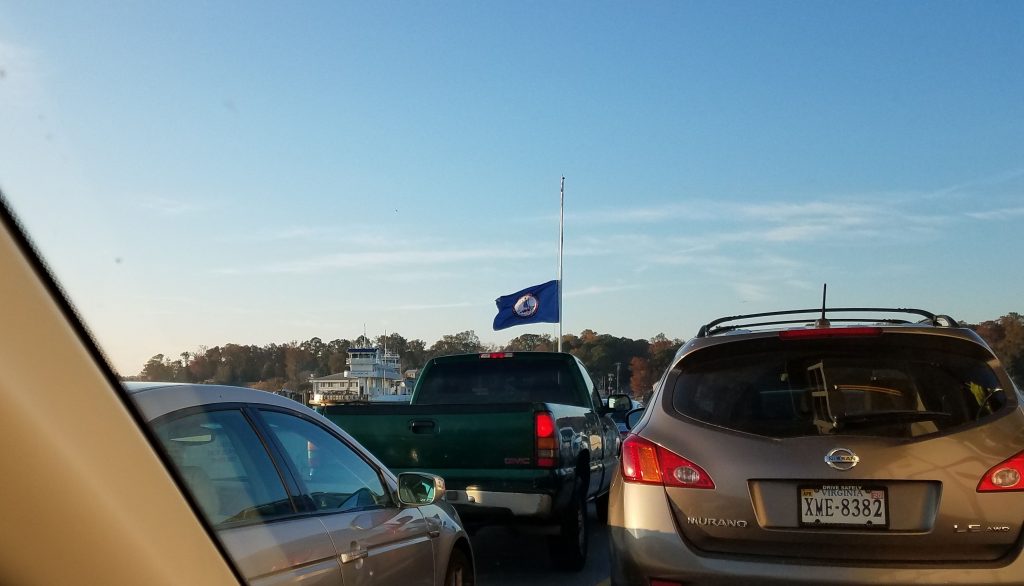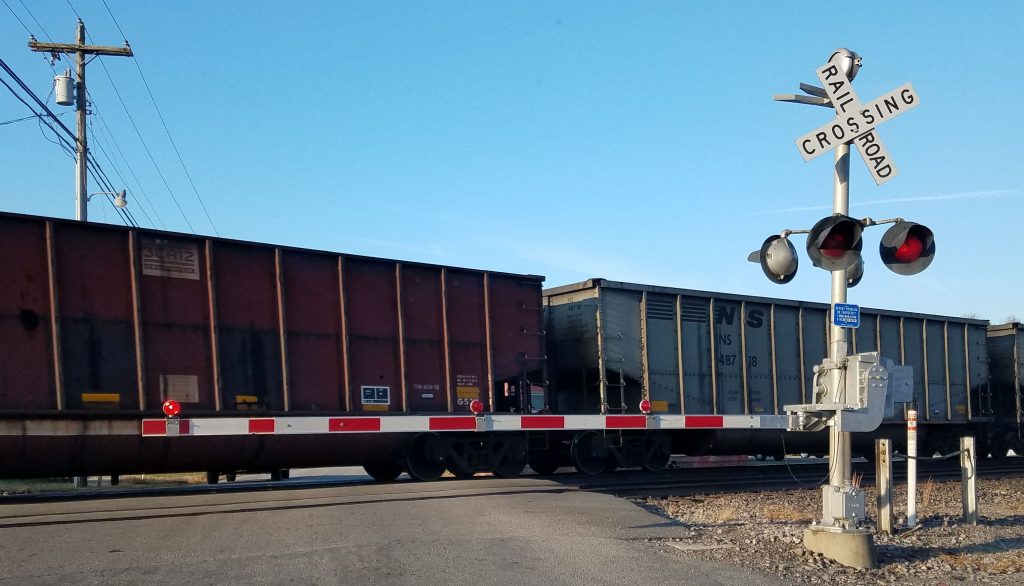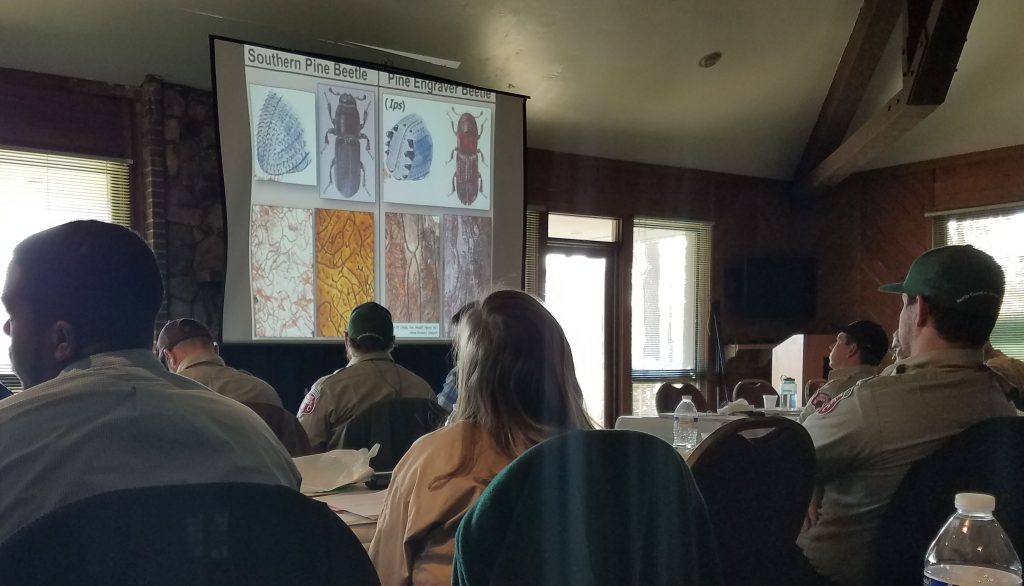My Freeman farm was used as one of the case studies at the Longleaf Academy today and we talked about land management plans. Every good land management plan starts with landowner objectives. What do you want to do on your land? Why do you have land in the first place? I could easily explain what I wanted to do with my land, but the meta question – the purposes principle – why I had the land, that was a harder question.
Family tradition
Lots of landowners inherit their land. A big part of the purposes question is answered for them. It is the family. They are carrying on the tradition, stewarding the land they got from their grandparents for their grandchildren. I have only the second part of that equation, and it does give me satisfaction to think that my kids will somebody appreciate the land. Few of the things I do on the land will pay off fully in my lifetime. I like to think that my effort extends at least into the next generation. I like to think that when they contemplate the subliminal beauty of their own piece of nature, that they will remember me in it. This is both a selfish and a selfless sentiment. I choose to emphasize the latter.
The kids are willing to help. They planted trees last year and will do again. I am not sure they appreciate it all right now, but I am confident that they will
A story – we needed to spread some rip-rap to protect the stream bank on our Diamond Grove place and I needed the boys to help. For those unfamiliar with riprap, it is made up of rocks, most about the size of a basketball, but irregularly shaped. I bought twenty tons of riprap and had the truck driver drop it about twenty feet from the stream. I did this because I wanted the boys to “place” the rocks where the future stream should go, not just push them into the current one. Alex and Espen dutifully began to move the rocks. Hard work. After about two hours, one of them asked, don’t recall which, “couldn’t they have dropped the rocks a little closer to the stream?” I replied, “Sure, they could have done.” I like to think they thought that was funny. I am confident that they will someday look back and laugh. They did a good job, BTW. The rocks they placed support the natural bend in the stream, erosion is controlled and the water that passes over that spot flows clear and clean, unvexed on its way to the sea.
Community – natural & human
Another reason I own land developed after I got the land. Developed in interaction with the land and the biotic and the human communities on it. It was not my part of my plan because I didn’t know to plan it. I had a reasonable idea about the biotic communities from my long acquaintance with Aldo Leopold and the land ethic. It was the human community that surprised me. When I bought the land, I became an apprentice into a community. There was the community on the land itself, the guys at the hunt clubs and the neighbors who were so helpful. I feel that I have earned a place among them. I often run into community members on the land. Today, for example, I talked to the guys at the Reddy Creek Hunt Club. They were out hunting deer. Scott Powell got one. When on my way out, I saw Scott. I told him that I heard three shots, so assumed that they had bagged three deer. Scott said the first two shots were just to clear the shot.
We cooperate to make the land prosper for my forestry and their hunting and recreation. A prime piece of advice I would give to any absentee landowner is get a good hunt club. I am not sure I could comfortably own the land w/o them. I certainly would not with as much joy.
I accept my role. I suspect I provide stories, comic relief, but it is worth it. Last year I made the mistake of going down one of my muddy roads. I thought that all-wheel drive on my CRV could handle the mud and I was correct. Mud was not the factor. The problem was that my vehicle slipped off into two wonderfully parallel ditches. My SUV balanced on the middle with none of the wheels touching the ground. Your vehicle cannot move if the wheels do not contact the surface. I had a shovel, so I figured I could dig myself out. After about an hour, I gave up. Since much of my digging involved laying on the road and trying to dig into the road, I looked like a mud man. I called my local friends and a short time later they pulled me out, no doubt adding to local lore.
There is also the greater conservation community. I knew a lot of the people at the Longleaf Academy and they know me. We exchange information and experience, and many are friends, people I can count on. This means a lot to me. I think we all want to have a valued place in society. It need not be extraordinary. The simple rule is that is a lot of people would miss you if you were not there, you have a meaningful life.
When I contemplated retiring from the FS, I worried a lot about my identity. The great thing about retirement was that I was pulled into something I wanted, not pushed out. It has been great so far.
The triple bottom line
When I talked about landowner objectives in the Longleaf Academy, I mentioned the triple bottom line. Any successful enterprise must produce value for the community, i.e. good for people, for the environment, i.e. sustainable and better regenerative, and for the economy, i.e. it has to make money. Failing at any one of those bottom lines means that the enterprise is a failure. Succeeding at all three means success, even if none of the three is optimized. This I believe.
One more thing that gratifies me as I work on my land. When I first hatched the idea of buying forest land, it was objectively stupid. Who buys forest land? Certainly not some city boy with no actual experience with land buying, land owning or land working. Chrissy trusted me to make this buying decision and for that I am grateful and gratified. She must have had doubts, but she supported the “investment.” I am glad that I didn’t let her down. The land is not wildly profitable, but it neither is it a drain. The enterprise will break even, even if it does only after I am dead. I made it work on all three of the bottom lines and that is important to me.
Meaning in life
As I have said many times, knowing the meaning of life is something unavailable to the mortal man, but we can find – and should seek – meaning IN life. For me, my land and the communities and all the other things that go with it have been the book of life. I feel better every time I turn a page.
My pictures are tangentially related to the text. First is from the the conference, discussion of pine beetles. We mostly have them under control. Next is the Jamestown-Scotland Ferry. Chrissy asked me to get a picture. You can see what the ferry looks like in the corner of the picture. Last is a train crossing. Not many roads are surface train crossings these days.

John Matel's Memorial Blog


